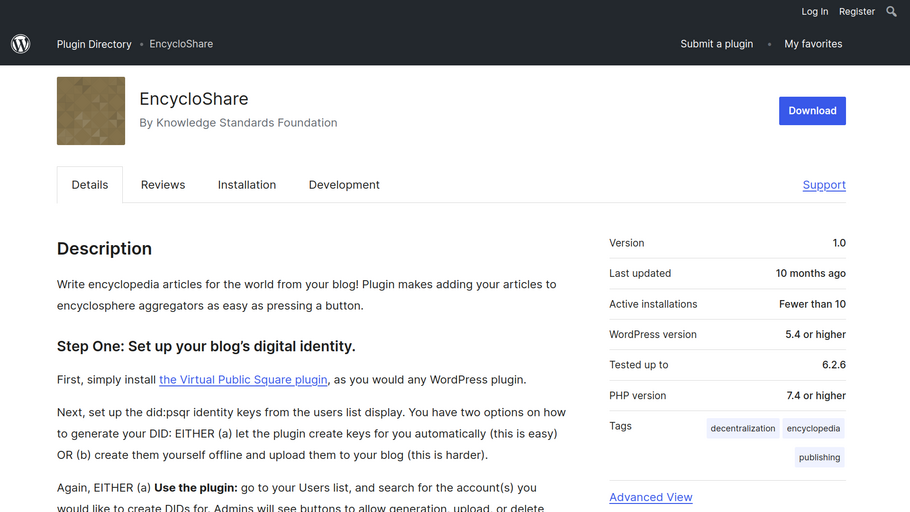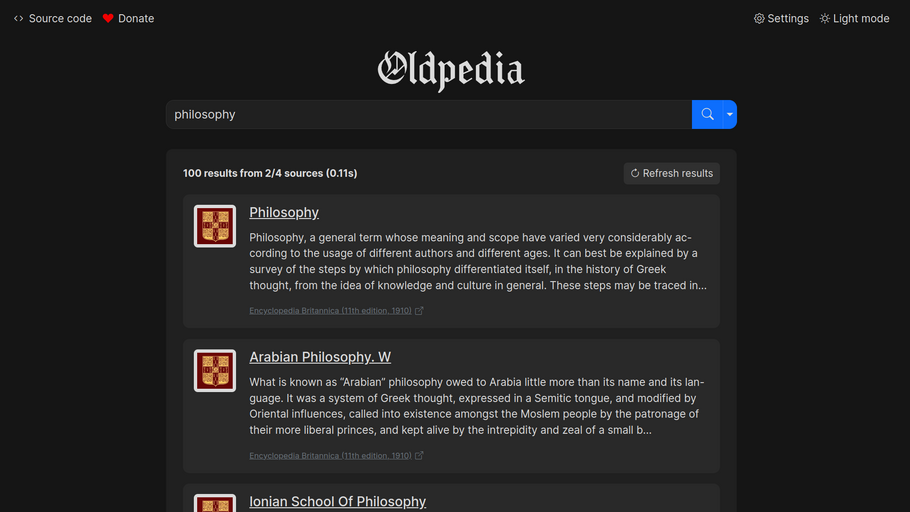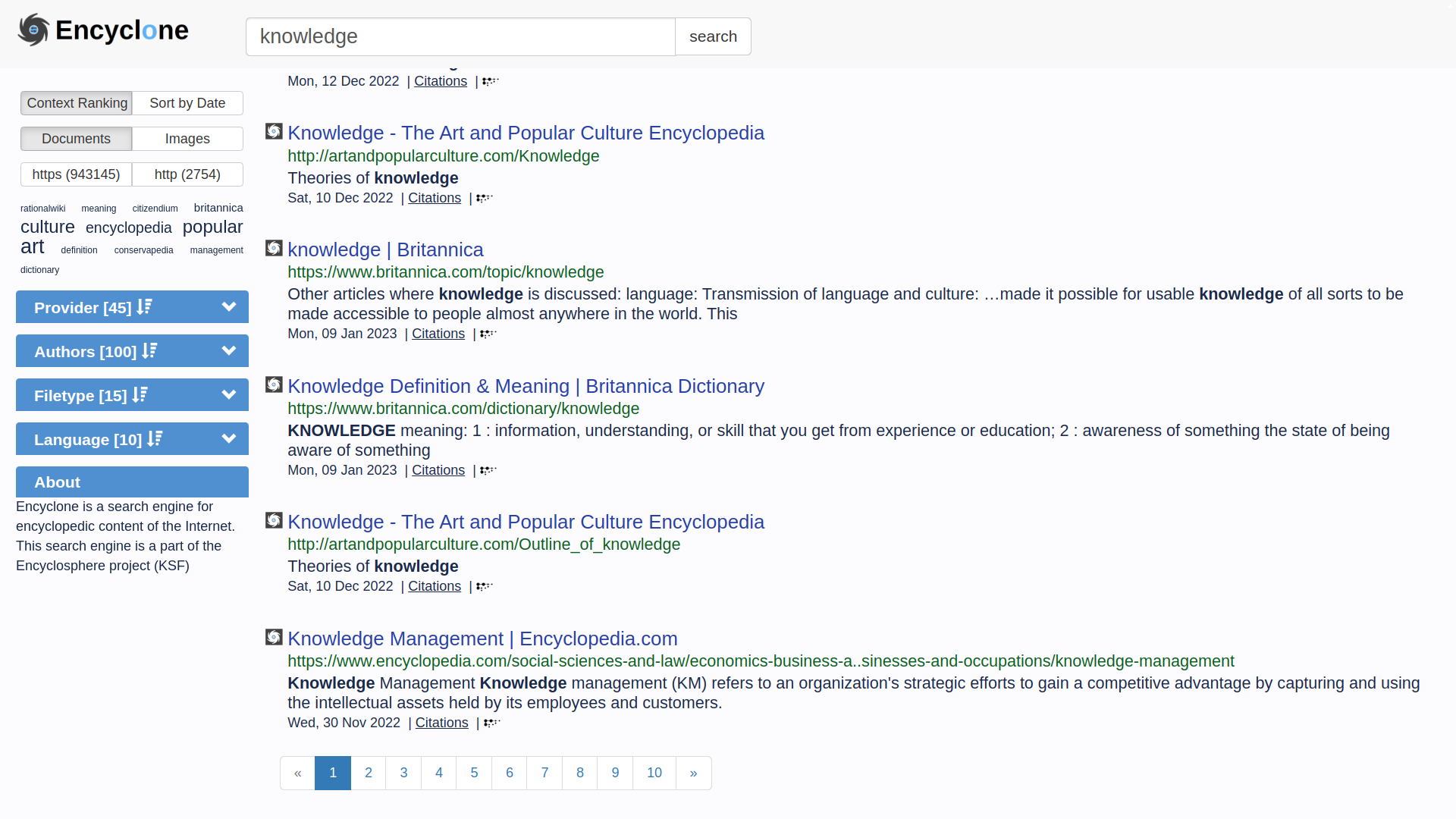ZWIBook Flash Drive
69,020 books in the palm of your hand.
Search and read over 30 encyclopedias in 12 languages, ad-free.
Search and read 65 encyclopedias. Ad-free and open source.
Browser Extension
Upgrade your searches with results from the Encyclosphere.
EncycloShare WordPress Plugin

Add articles from your WordPress blog to the Encyclosphere.
ZWIMaker MediaWiki Extension

Add articles from your MediaWiki wiki to the Encyclosphere.

Search and read old encyclopedias.
Encyclone

An encyclopedia search engine based on YaCy, decentralized search engine software.

